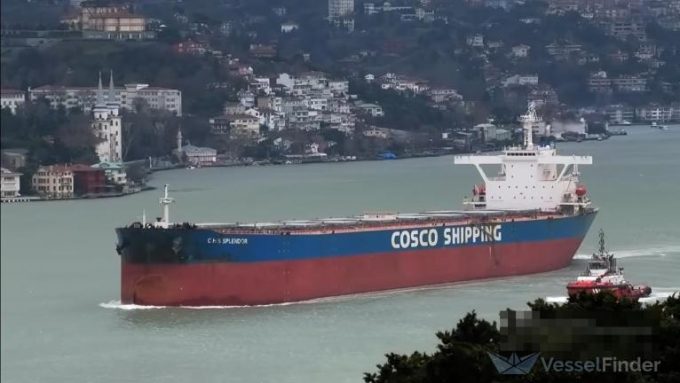Evergreen clients signing transpac contracts as Red Sea crisis props up rates
Taiwan carrier Evergreen said yesterday it believed the escalation of Israel-Iran tensions means the Red ...

The attempted hijack of a Liberia-flagged cargo ship in the Arabian Sea yesterday has raised navigational safety concerns already confronting the container shipping industry around Red Sea/Suez Canal routings.
According to reports, the attempt to take over the Lila Norfol, a bulk carrier with some 15 Indian crew on board, off the Somalia coast was unsuccessful.
“Responding swiftly to the developing situation, the Indian Navy launched a maritime patrol aircraft and diverted the frigate INS Chennai, deployed for maritime security operations, to assist the vessel,” said the Indian government.
“The aircraft overflew the vessel on the early morning and established contact, ascertaining the safety of the crew,” it added.
The hijack attempt came after Indian forces had tightened surveillance and patrols in the region following a drone attack on another vessel off the Gujarat coast two weeks ago. The Chem Pluto – enroute to New Mangalore from Al Jubail in Saudi Arabia – was hit on 23 December.
Industry sources see these incidents as a sign that the shipping security crisis, involving missile/drone attacks by Iran-backed Houthis from southern Yemen on commercial ships transiting the Red Sea, is not only worsening, but also spilling over to other regions.
Since mid-November there have been more than 20 attacks reported in the Red Sea, foiling attempts by carriers, particularly Maersk, to revert to the traditional Suez Canal route.
“The situation is constantly evolving and remains highly volatile, and all available intelligence at hand confirms that the security risk continues to be at a significantly elevated level,” said Maersk in an operational update today.
“We have, therefore, decided that all Maersk vessels due to transit the Red Sea/Gulf of Aden will be diverted south around the Cape of Good Hope for the foreseeable future,” the Danish carrier added.
Sunil Vaswani, executive director of the Container Shipping Lines Association, told The Loadstar: “It is unfortunate that while on the one hand, container shipping lines have done all that they could to increase capacities and introduce new services to assist supply chains, on the other the global scenario is only making things difficult.”
According to Mr Vaswani, Indian trades to/from Europe and the US could bear the brunt of the fallout from the crisis, with the potential of additional war-risk surcharges as the security threat widens.
And Jitendra Srivastava, CEO of Mumbai-based forwarder Triton Logistics & Maritime, told The Loadstar the situation posed “multiple challenges” for the Indian export/import trade. He said: “Exporters are facing a challenging landscape with serious transit delays, rising costs and supply chain bottlenecks, which could potentially impact their overall market competitiveness.”
Rate hike announcements on top of contingency surcharges by several major carriers on Indian trades for this month reflect that growing concern.
Comment on this article
Mark Holloway
January 05, 2024 at 3:25 pmThis is a war. Maybe time to consider convoys and formal escorts?